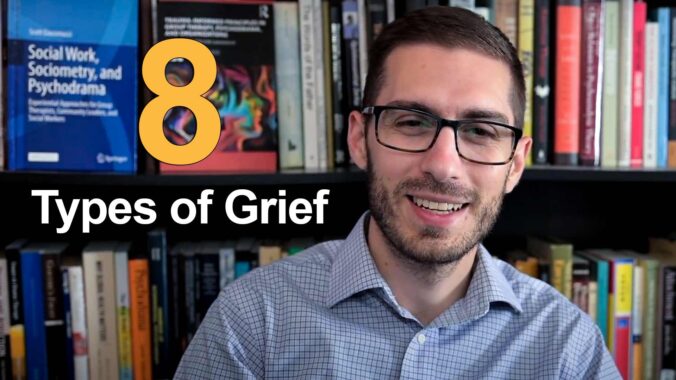Offering Trauma Therapy at the Phoenix Center in Media, PA or Online!
484-440-9416 | [email protected]
Grief is a universal experience, yet it manifests in various ways, influenced by individual circumstances and the nature of the loss. At the Phoenix Center for Experiential Trauma Therapy, we recognize that understanding the different types of grief can aid in the healing process. This article explores 8 types of grief:
- Complicated/Traumatic Grief: This type of grief is intense and prolonged, often triggered by sudden or traumatic loss. It can disrupt daily functioning and may require professional support to navigate the overwhelming emotions and thoughts that accompany such a profound loss. EMDR is a type of therapy that is quite effective for traumatic loss, especially when the loss is accompanied by disturbing images.
- Anticipatory Grief: This occurs when loss is expected, such as in the case of terminal illness. Anticipatory grief allows individuals to begin the grieving process before the actual loss, providing a complex blend of emotions, including sadness, anxiety, and relief.
- Delayed Grief: Sometimes, individuals suppress their grief, either consciously or unconsciously, only to experience it intensely at a later time. This delayed reaction can be triggered by a subsequent loss or significant event that brings the initial grief to the surface.
- Inhibited Grief: Inhibited grief involves the suppression of grief reactions, often due to societal or cultural expectations. Individuals may not express their grief openly, leading to unresolved feelings that can manifest physically or emotionally over time.
- Abbreviated Grief: This type of grief is short-lived, often because the individual had already begun to process the loss in advance or because the lost relationship was less significant. Abbreviated grief does not imply a lack of emotional depth but reflects the varied ways in which people experience and process loss.
- Disenfranchised Grief: This occurs when a loss is not socially recognized or validated, such as the death of an ex-partner, a pet, or a miscarriage. Disenfranchised grief can be particularly challenging as it may not receive the support and acknowledgment typically afforded to more socially accepted forms of grief.
- Collective Grief: When a community or society experiences a significant loss, such as a natural disaster, terrorist attack, or pandemic, collective grief emerges. This type of grief is shared among many and can foster a sense of solidarity and communal healing.
- Cumulative Grief: Also known as “grief overload,” cumulative grief occurs when multiple losses happen in a short period, overwhelming the individual’s capacity to cope. Cumulative grief is also experienced when one inhibits or delays their grief, such as someone who uses substances or alcohol to numb their grief over many years. Each successive loss can compound the grieving process, making it harder to find resolution and peace.
At the Phoenix Center for Experiential Trauma Therapy, we are dedicated to supporting individuals through their unique grieving journeys. Recognizing the type of grief you are experiencing is a crucial step in finding the appropriate support and healing. The 8 types of grief outlined above are far more common than you’d think. If you or someone you know is struggling with grief, our team is here to help guide you through this challenging time.
Learn more about our therapists experienced in helping people through grief and loss or our grief and loss therapy group offered at the Phoenix Center.
Offering Trauma Therapy at the Phoenix Center in Media, PA or Online!
484-440-9416 | [email protected]


